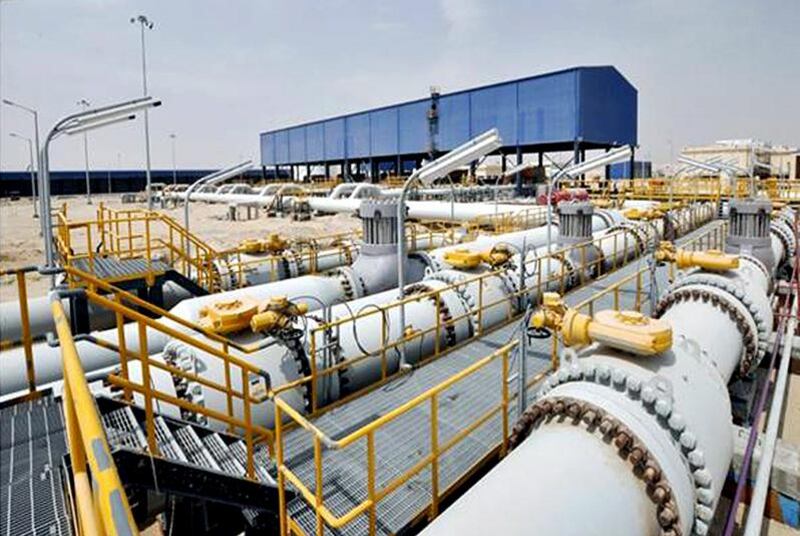The Abu Dhabi government-owned International Petroleum Investment Company (Ipic) is studying financing options for building two refineries valued at US$9.5 billion.
A detailed feasibility study was carried out on the $3.5bn Fujairah Refinery Project, Ipic said in a bond prospectus posted on the London Stock Exchange.
Ipic plans to raise an “unlimited amount” through a guaranteed global medium term note programme.
The duration of medium term is typically up to 10 years. Arrangers of the bond are BNP Paribas, Merril Lynch International and National Bank of Abu Dhabi. The company will use the proceeds for “general corporate purposes”, according to its prospectus.
Among the options Ipic is considering for the Fujairah refinery is non-recourse project financing, where a lender is only entitled to take payments from profits of the project rather than from other assets of the borrower.
Ipic is also studying financing options for a $6bn refinery in Duqm, a 50:50 joint venture with the Omani government.
The parties “are currently considering a number of financing options, including, but not limited to, non-recourse project financing”, Ipic said.
The developments come after the state-controlled investment company last week said it planned to triple its workforce with the recruitment of up to 500 UAE nationals at the Fujairah Refinery Project, the Abu Dhabi Crude Oil Pipeline Project, ChemaWEyaat and Emirates LNG.
The proposed Fujairah refinery would be near the outlet of a 1.5 million-barrel-a-day oil pipeline running to the coast and set to be completed this year. The 400 kilometre pipeline will give access for exports to the Gulf of Oman, allowing shipments to bypass the Strait of Hormuz, the waterway connecting the Arabian Gulf and the Indian Ocean and is the transit point for tankers hauling oil from producers including Saudi Arabia, Qatar, Iraq and Kuwait.
Current capacity of the pipeline stands at 850,000bpd, Ipic said in the prospectus, less than its planned full capacity of 1.5 million bpd. The prospectus did not determine a time horizon when the pipeline would reach full capacity.
The refinery will be able to process UAE crude and will give Abu Dhabi the option to export its hydrocarbons as crude or refined products, which can fetch higher prices on international markets.
Middle Eastern oil producers are investing in or evaluating refinery projects capable of serving markets in Asia, where fuel demand is set to grow.
The Duqm refinery, envisaged in 2009, is “designed to process a mixture of Abu Dhabi, Sultanate of Oman and other regional crude oil with a processing capacity of approximately 230,000 barrels per day,” Ipic said.
Ipic “has awarded the project management consultancy contract and is currently in the pre-front- end engineering and design phase.”
halsayegh@thenational.ae
* with Bloomberg News





